Recycling bins for e-waste to be rolled out at all CCs by mid-2026; over 34,000 tonnes collected in four years
Shabana Begum for The Straits Times
Over 34,000 tonnes of electronic waste have been collected throughout Singapore since 2021, and to make recycling more convenient all community centres will be equipped with e-waste bins by June 2026.
Close to 10,000 tonnes of e-waste have been collected already in 2025, a 60 per cent increase from the same period the previous year, said the scheme's operator Alba E-Waste Smart Recycling on Oct 12.
When the programme started in 2021 to have old batteries, laptops and large appliances recycled apart from other recyclables, the collection by early 2022 stood at 3,500 tonnes.
To make it easier for residents to find e-waste collection points, the Alba Step Up app has been revamped with added features to locate the nearest bin, among other user-friendly changes and rewards for recycling.
These enhancements to Singapore's e-waste recycling scheme were announced by Senior Minister of State for Sustainability and the Environment Janil Puthucheary on Oct 12 at an event to mark International E-waste Day.
With all community centres and clubs having e-waste bins by mid-2026, there will be 1,015 collection points islandwide. There are currently around 1,000 drop-off points, up from about 870 a year ago.
While Singapore has seen an improvement in the amount of e-waste collected, Alba E-Waste's chief executive Jakob Lambsdorff does not want his firm and the public resting on their laurels.
Singapore's household recycling rate in 2024 dipped to its lowest at 11 per cent, and reasons include a weak recycling culture, contamination of the blue recycling bins, and some business challenges.
According to recent media reports, recycling company SG Recycle is folding its paper recycling arm due to funding woes.
As Alba sets up more drop-off points for e-waste, Mr Lambsdorff is hoping the recycling rate continues rising. The operator is also looking into setting up bins in residential estates.
"We still have a long way to go, and we want to make it more convenient to the public... We believe there is still significant runway to improve collection rates further," he said.
"There is a certain quantity of electronics sold into the Singapore market each year, and we want to achieve as high a collection rate as possible."
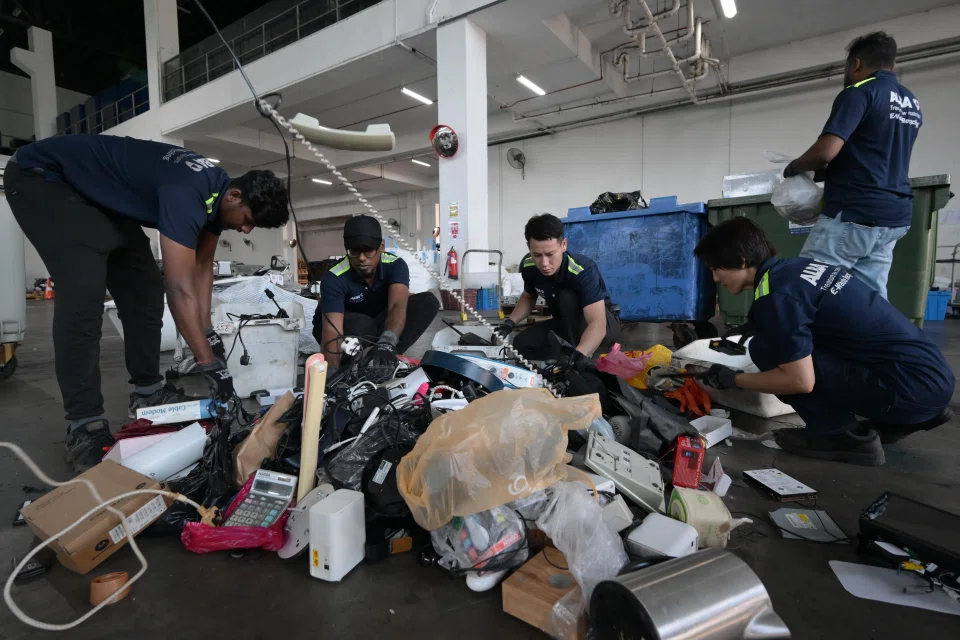
A 2018 study found that more than 60,000 tonnes of e-waste was generated in Singapore each year, and only 6 per cent of that amount was recycled.
E-waste contains heavy metals and hazardous substances that, if improperly disposed of, can harm public health and contaminate the environment, said Dr Janil at Bedok Town Square on Oct 12.
Old batteries, laptops and refrigerators are a treasure trove of metals and other materials that can be recycled, to reduce digging up the earth for raw metals.
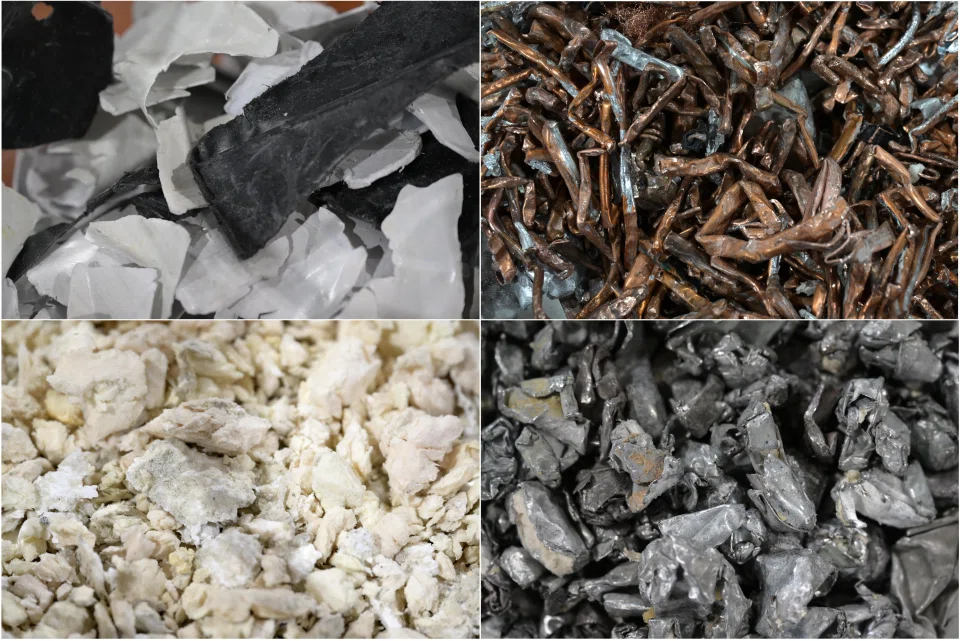
In 2021, the National Environment Agency (NEA) appointed Alba to collect regulated consumer e-waste across Singapore and send it for recycling on behalf of producers.
This programme is funded by local firms who supply, manufacture and import electronics here.
Alba's e-waste collection points are located in places such as shopping malls, electronic retail stores, supermarkets and community centres. It has four types of bins, including one that accepts household batteries only, as well as drop off-services in supermarkets.
Since January, residents have been able to have their bulky appliances like refrigerators, washing machines and air-conditioners picked up at their doorsteps for free, under the scheme.
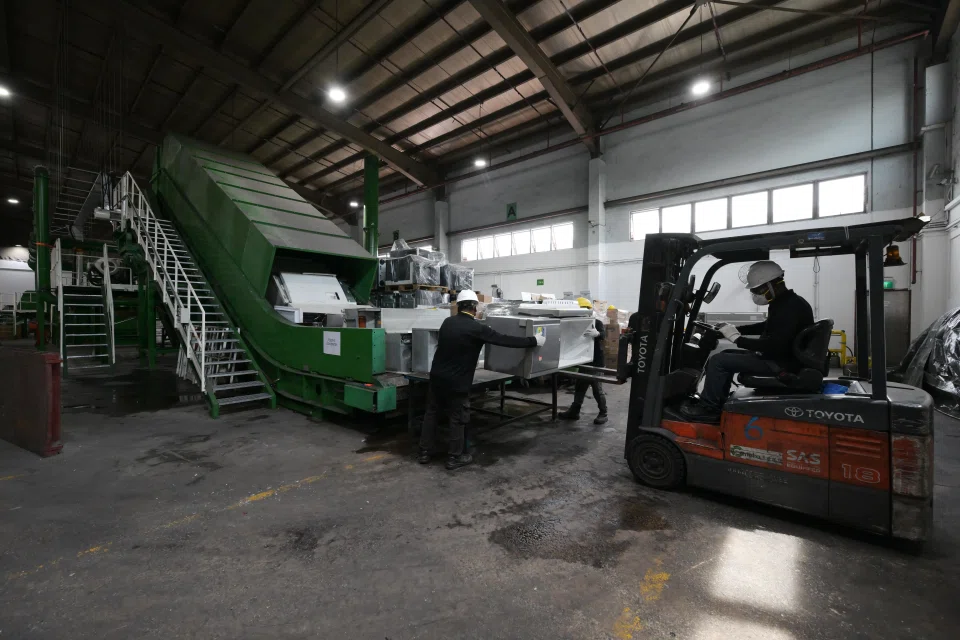
Taking users' feedback into account, the Alba Step Up app now has a bin-locator feature to help users find the nearest e-waste collection point. The app's display and layout were also improved to make them more user-friendly.
In the past year, large household appliances made up the majority of the e-waste collected, with air-conditioners as the highest volume recycled. This was followed by ICT equipment and portable batteries, said Alba.
Mr Lambsdorff added that smaller items such as adapters, portable chargers and batteries remain under-collected, although they are critical for recovering valuable raw materials.
He noted that lithium-ion batteries can pose significant fire and safety risks when disposed of with general waste or in the blue recycling bin.
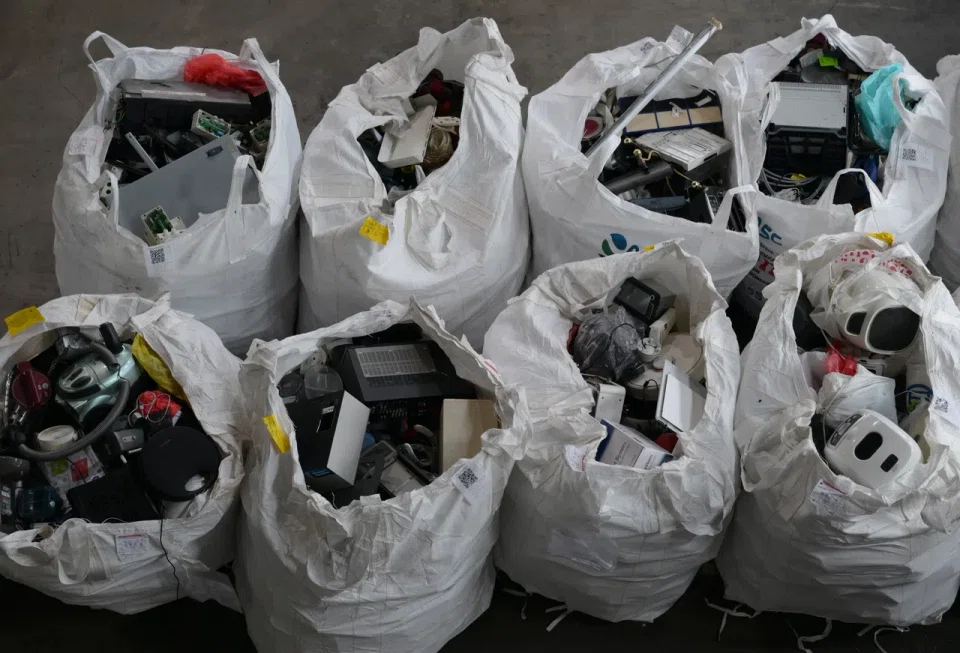
Fluorescent tubes and light bulbs are often thrown into the trash despite containing trace amounts of mercury that need to be carefully treated, he said.
Several members of the public are also inclined to hold on to their old mobile phones and laptops due to fears about data security.
"Convenience, accessibility and education must go hand in hand, alongside reassuring the public that proper recycling ensures secure and responsible handling of their devices, said Mr Lambsdorff.
Dr Janil said managing waste requires active participation from everyone - from purchasing mindfully to using devices to their full lifespan and recycling responsibly.
Over 80 schools, from pre-schools to tertiary institutions, are taking part in a nationwide challenge to encourage students to recycle batteries.
As at July 1, more than 338kg of batteries have been collected through the competition, which ends in February 2026.
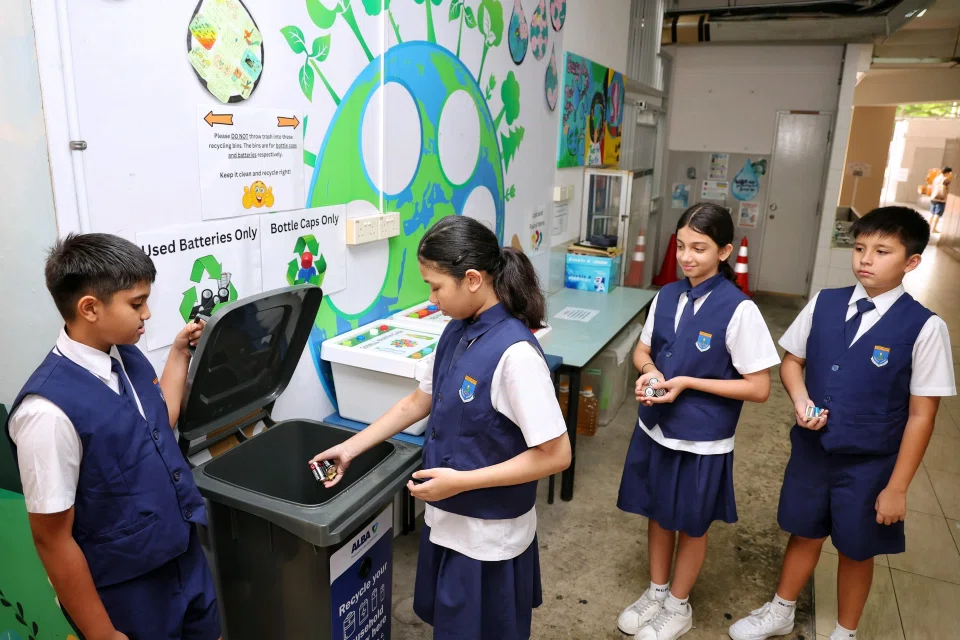
At Bedok Green Primary School, pupils are engaging their parents in the competition.
Primary 5 pupil Basyeerah Muhammad Muzzammil said the competition made her think twice before throwing away her electronic devices.
The 11-year-old said: "My father told me, instead of throwing my calculator away, 'why don't you collect this battery, then we'll recycle it later.'"
